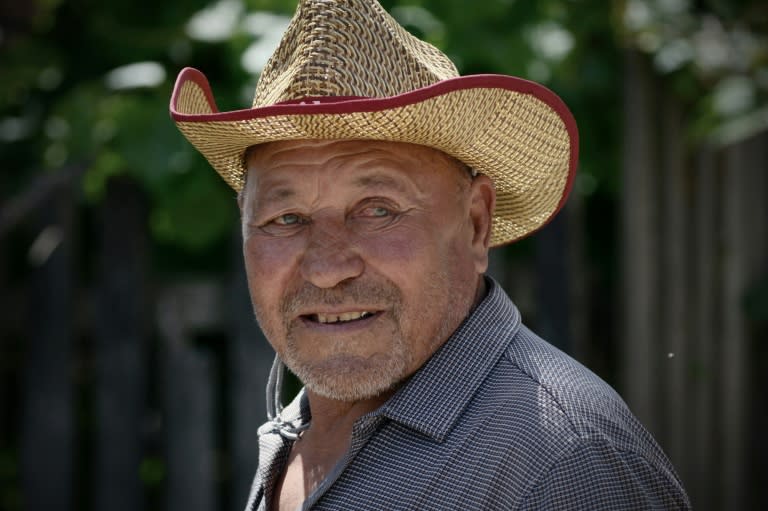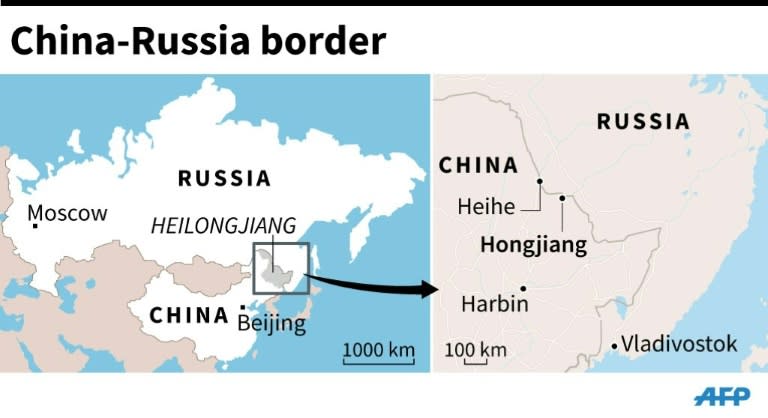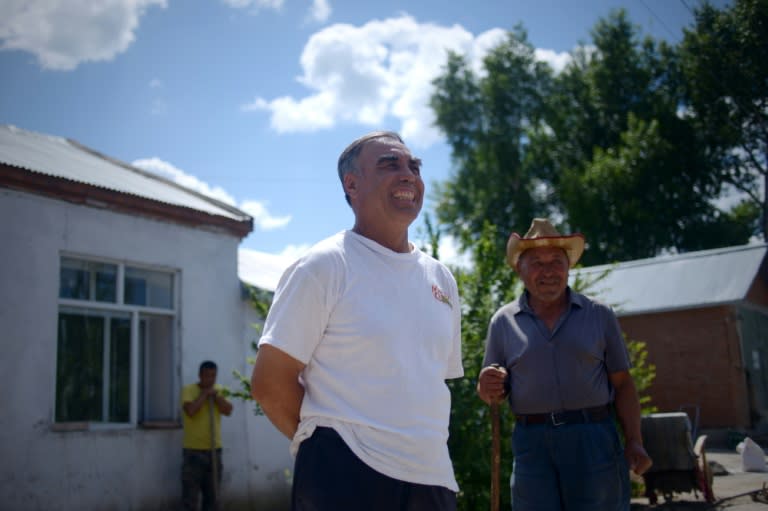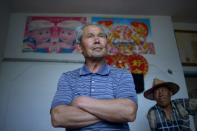Border fear and betrayal beneath Sino-Russian warmth
Savagely beaten and accused of spying for Moscow, Xu Weiyi –- one of China's few citizens of Russian descent -- stared over the river separating his border village from the Soviet Union, longing for escape. "My mother was too old, so it was mostly us -- me, my brother and sister -- who took the beatings, and we bled," said Xu, now 81. "I just wanted to run away." Russian President Vladimir Putin arrives in China this week for a huge parade to commemorate the end of World War II, one of the few major foreign leaders to attend. It will be at least the ninth time Putin has met his Chinese counterpart Xi Jinping. Despite their current closeness and shared Communist past, the neighbours were once bitter rivals, their enmity reaching the brink of war during Mao Zedong's decade-long Cultural Revolution. Xu inherited his piercing blue eyes from his mother, one of more than 20 Russian women who early last century fled across the frozen Amur river -- carrying a starving baby -- to escape the upheavals following the October Revolution of 1917. They found refuge in the northeast Chinese village of Hongjiang, where the women married local farmers, but kept foreign traditions including Orthodox Christian prayers, a love for fresh potatoes and folk songs. Some villagers aided the Soviet army as it battled Japanese forces in China in the final days of World War II, and after Mao's Moscow-backed Communists took power in 1949 they prospered in the early years of the People's Republic. But when relations soured, the women and their offspring found themselves accused of espionage. Public interrogations and beatings known as "struggle sessions" were carried out daily by fellow villagers and Communist officials from outside, Xu recalled. During the desperate days of the anti-spy campaign -- which saw multiple suicides -- Xu considered reversing his mother's trip and crossing the Amur back north. "I saw there were gaps in the border wall, and had energy to swim," he recalled. But family ties held him back. "I thought... all my family will still be here -- what will they do? All those old people and children?" he said. "So I stayed. I thought whatever happens will happen. If we live or die, it will be together." - 'Revenge in my heart' - As well as calls to attack former landlords, intellectuals and their descendants as so-called "class enemies," Maoism had a virulent anti-foreign strain. During the Cultural Revolution anyone who had had contact with foreigners was liable to be branded a spy. The country's legal system virtually collapsed, replaced by mob justice. In the 1960s nearly three-quarters of the 300-odd people of Hongjiang, in the far northeastern province of Heilongjiang, had Russian blood, making them prime targets as tensions mounted and Chinese and Russian troops exchanged fire over the Amur. "They would accuse you of a crime, whatever they said you were, you were," said half-Russian villager Xu Yingjie, 76 -- no relation. "At the sessions someone would accuse you of being a Soviet spy. The person accused would deny it, and then they would be beaten." Zhang Yunfu was half-Russian and had provided intelligence to Soviet soldiers fighting Japan. But years later, officials wielded letters he sent to the Soviet Union as irrefutable evidence of disloyalty, and he was imprisoned in a cowshed, subject to regular beatings. In August 1968, he committed suicide. Nearly five decades later, his son Zhang Yunshan -- 13 at the time -- matter-of-factly described his father's death and the hasty burial organised by Communist cadres. "My father couldn't stand it any longer. So he jumped in the well," he said, trowelling concrete onto a house he is building in the village. "Though most were from outside, we still often see the people who beat us," he added. Xu Weiyi encouraged his children to marry "pure" Chinese to reduce the threat of foreign blood putting his grandchildren in danger. "We are all people," he said. "How could this possibly have been justified?" Zhang's father and others had their cases formally "overturned" after the Cultural Revolution, when Mao's successor Deng Xiaoping rehabilitated tens of thousands of victims. "When I was younger revenge was in my heart. But what's the point of revenge?" said Zhang. "Those people were also swept up in the policies of the day. - 'Very popular' - Beijing still tightly controls discussion of the Cultural Revolution and has not allowed a full historical reckoning, but domestic media have been able to tell the villagers' stories in recent years. Relations between China and Russia improved after Deng took power, and the two countries resolved the last of their border disputes in 2004. Now they frequently vote together on the UN Security Council, China is a key market for Russian oil and gas, and their militaries hold joint exercises from the Sea of Japan to the Mediterranean. And the Communist Party, which once vilified Russians, is promoting the border area's foreign heritage. A large sign reading "Russian ethnic village" greets visitors to Hongjiang, and a European-style meeting hall has been erected by the village's Communist Party secretary -- who is also of Russian descent. A few miles away a neighbouring hamlet has branded itself the "Number One Russian Minority Village", and holds an annual festival with Slavic folk music and dancing. "I'm proud of being Russian," said resident Wang Yanqing. "Things in the Cultural Revolution were extreme. Now Russians are very popular."

 Yahoo Finance
Yahoo Finance 









